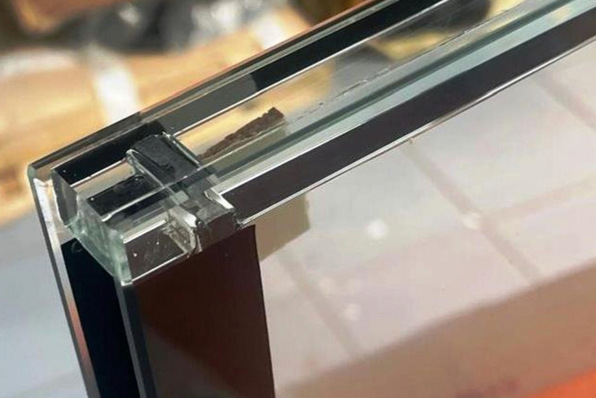The topic of environmental protection is becoming increasingly important - this also includes the protection of birds. When flying, birds often recognise glass panes too late and crash into them. Most of the time, the birds are still able to get up and continue to flap, but they are so badly injured by the collision that they die elsewhere. Large glass surfaces and bird protection are not contradictory - if a few things are taken into account.
Measures for bird protection
The Swiss Ornithological Institute Sempach has developed a guideline for bird protection with glass (https://t1p.de/3cqrn). Among other things, it recommends using glass with a maximum external reflectance of 15 per cent and making glass panes visible to birds by clearly delineated lines and patterns.
However, a minimum coverage of the glass must be ensured. This should be at least 15 per cent of the glass surface for lines and at least 25 per cent for dots.

Doppelmayr Ropeways GmbH / Daniel Zangerl
See also: How bird protection glass works
In addition, the design elements should be arranged so close together that no bird has the impression that it can fly through them. Now, however, the question arises as to how and with what aids the glass can be prepared.
The well-known stickers with the outlines of birds are neither satisfactory in terms of bird safety nor aesthetics. Since bird protection has been an issue at Glas Marte for many years, the company offers good solutions in this area. In addition to glass engraving, these include screen printing (GM Printmart) and reflective motifs (GM Chrome and GM Light Chrome).
How screen printing on glass can protect
Under the name GM Printmart, Glas Marte offers toughened, tempered and laminated safety glass. These glasses are designed using ceramic, lead-free inks that the manufacturer applies through a fine-mesh fabric.
In the tempering process, the colours are baked at a temperature of over 600 °C and thus firmly bonded to the glass surface. Glas Marte has a wide range of standard motifs, but also realises individual designs.
Also interesting: How to make bird protection glass beautiful

Glas Marte
Glasses with standard designs are available up to a maximum size of 2000 x 4000 mm, individually designed glass panes can actually be produced up to 2460 x 5900 mm.
Reflective glass for bird protection
With reflective glass, a motif is permanently printed onto the glass surface using a multi-layer process. Complex patterns as well as combinations of coloured prints can be realised.
The coatings can be applied to different types of glass, for example coloured float or textured glass. The manufacturer offers the prints with deep, strict contrasts under the name GM Chrome.

Glas Marte
Almost invisible from inside
If the mirroring is to be more discreet, it is available under the name GM Light Chrome. The advantage of this finishing: from the outside, the glass appears rather matt, from the inside, the print is hardly visible. In addition, the glass processed in this way has the advantage that it offers effective protection against sunlight and heat.
Depending on the area of application, both processes offer their individual advantages. The employees of Glas Marte are available to assist planners, architects and building owners in selecting the most suitable solution. They have many years of experience in how which pattern affects the appearance of the architecture. At the same time, the bird protection glass can be combined in a visually appealing way with high functionality.

Glas Marte
Bird protection glass for the Madlochbahn mountain station and the Auenfeld barracks
Good examples of how bird protection can be realised in an aesthetically pleasing way on large glass surfaces are the Madlochbahn cable car and the catering building of the Auenfeld barracks.
The Madlochbahn is the mountain station of the cable car in Zürs/Arlberg. It was completed in 2021. Glas Marte glazed the technical heart of the installation. As the glass surfaces of the free-standing building were very large, those responsible decided to provide the outer glass panes with GM Chrome, making them visible to birds.
Also from Glas Marte: A colourful glass facade for German MPs
For the motif, the planners chose a fine network of wavy lines reminiscent of curved ski tracks in the snow. To ensure that no one is dazzled and the interior does not get too warm, a royal blue solar control coating (Royal Blue 20HD) was used on the last glass level.
The catering building of the Auenfeld barracks in Frauenfeld was also equipped with bird protection glass in order to achieve the required Minergie-eco certification. The reflective glass GM Light Chrome was used, whose motif corresponds to the white cross (field emblem of the Swiss Armed Forces) and consists of many small crosses distributed over the entire glass surface and condensed into several large ones.













